
“. . . Choose this day whom you will serve, whether the gods your fathers served in the region beyond the River, or the gods of the Amorites in whose land you dwell. But as for me and my house, we will serve the LORD.”
Joshua 24:15
Towards the end of the book of Joshua, after dividing the land among the tribes, he gathers all of Israel together at Shechem, a place full of the history of their people. It was at Shechem that God told Abraham “To your offspring I will give this land.” (Genesis 12:7) In a way Joshua is fullfilling that promise at this moment. He reminds the Israelites of everything God has done and then gives them an ultimatum: “Choose this day whom you will serve.” The Israelites claim they will follow the Lord, to which Joshua surprisingly remarks, “You are not able to serve the LORD, for he is a holy God. He is a jealous God; he will not forgive your transgressions or your sins. If you forsake the LORD and serve foreign gods, then he will turn and do you harm and consume you, after having done you good.” (Joshua 24:19-20)
I guess Joshua knew the people well, the entire book of Judges is filled with stories of how the people of Israel kept turning away from God, falling into the hands of their enemies, and crying out to the Lord to save them. Time and time again God raises up people to save Israel, and yet they keep turning away.
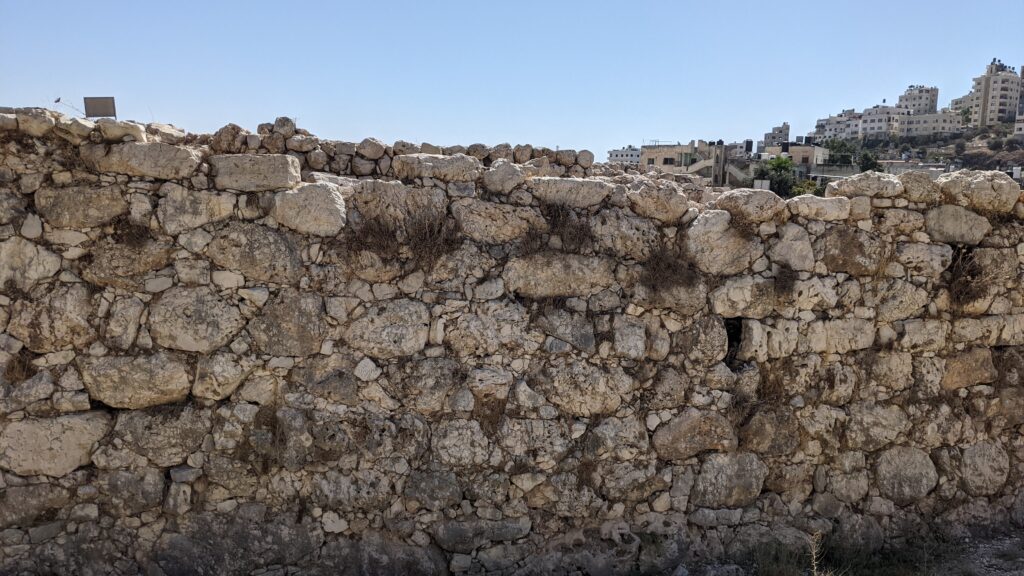
The Walls of Shechem 
Mount Gerizim 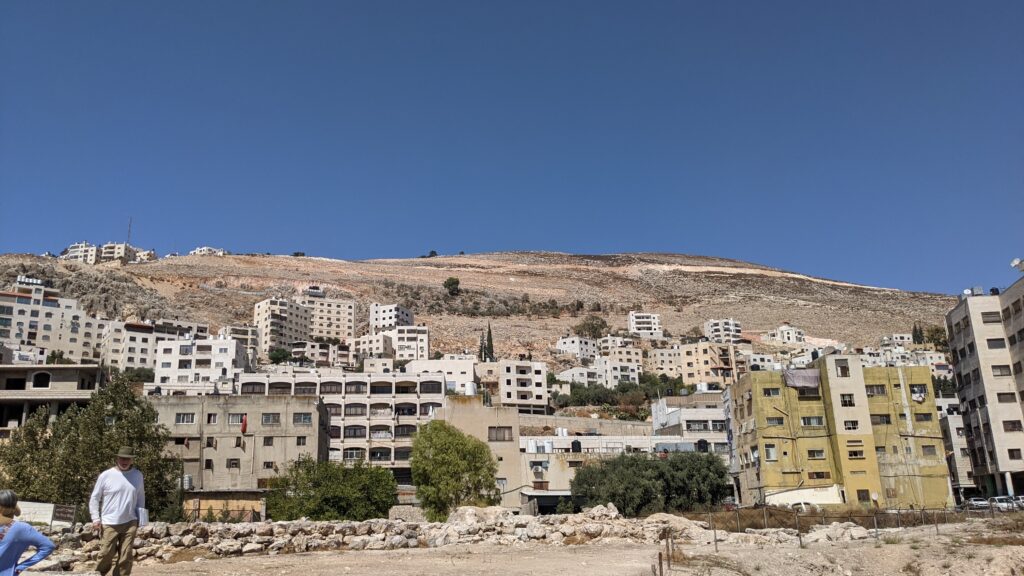
Mount Ebal 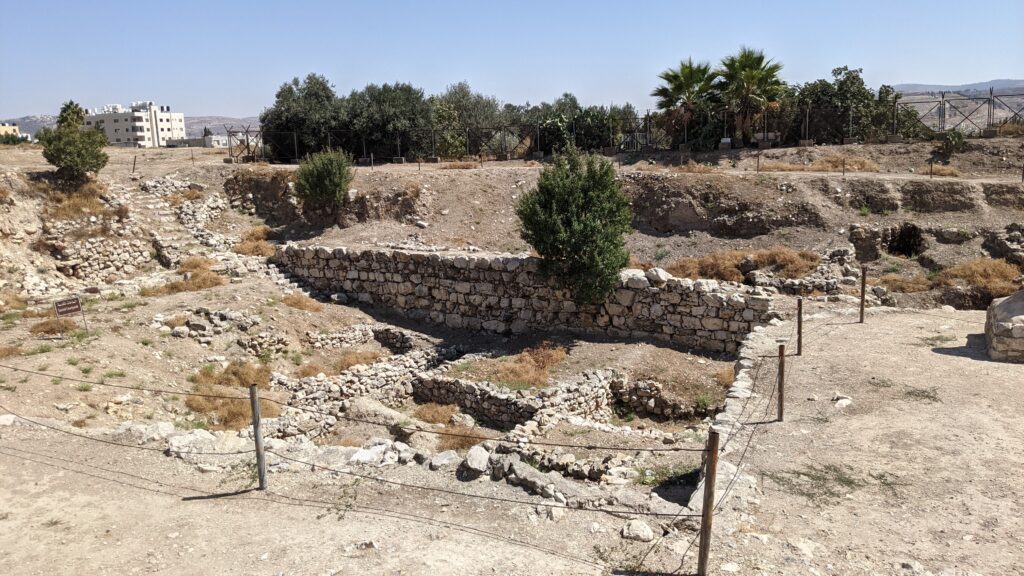
Part of the old temple area at Shechem
The mountains of Gerizim and Ebal which flank Shechem represent blessings and curses respectively. Towards the south, Gerizim is lush, fertile, and full of plant life, even after the dry months of summer, a blessed land. Ebal to the north on the other hand is rocky, dry, and barren. They represent the choice that Joshua gave to the Israelites, along with his warning. Serve God faithfully, and He’ll bless you like Gerizim, seek after other God’s and He’ll leave you barren like Ebal.
Interestingly these mountains also point in the directions of the choices. Southward from Gerizim we find Shiloh, where the Tabernacle of the Lord was kept after entering the promised land. It was here that people came and worshiped the Lord for over 300 years. One of those people was Elkanah, who would take his family there for all of the feasts. He had two wives, Peninnah, who had children, and Hannah who did not. In the book of 1 Samuel, Hannah’s prayer for a son moved the heart of God, and he answered her prayer. To this day it is held up as an example of a true heartfelt prayer. Her son, Samuel, was given back to the Lord to serve in the tabernacle, and as he grew God began to speak to him.
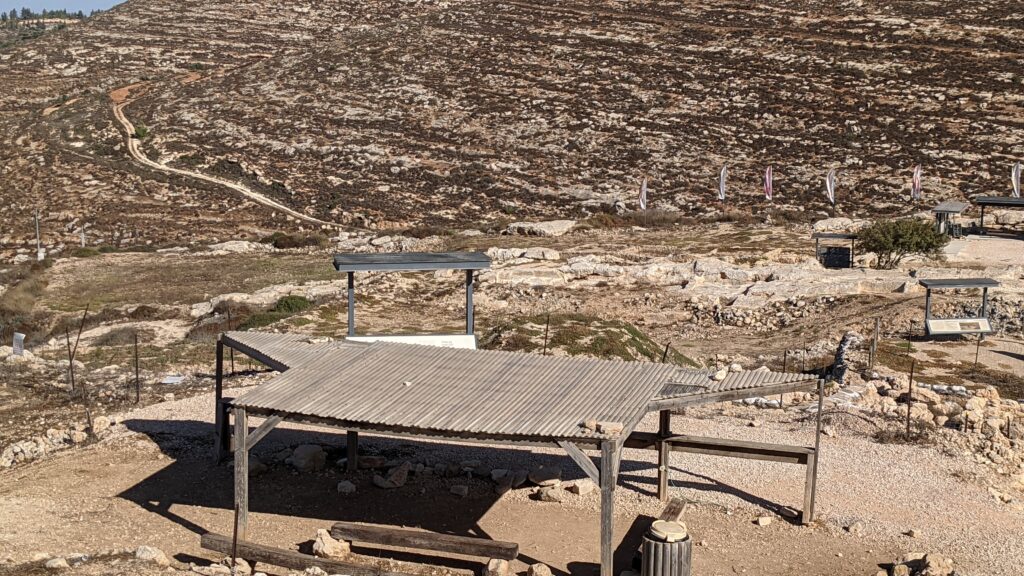
A veiw of where the Tabernacle might of Stood 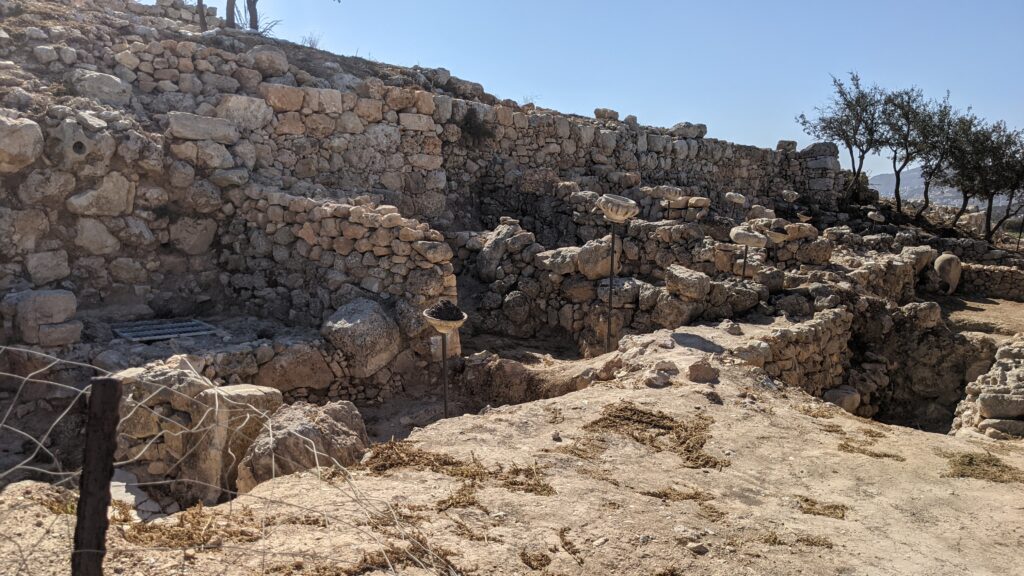
Storage rooms, housing goods used by the priests in the Tabernacle 
Old Byzantine Ruins at Shiloh 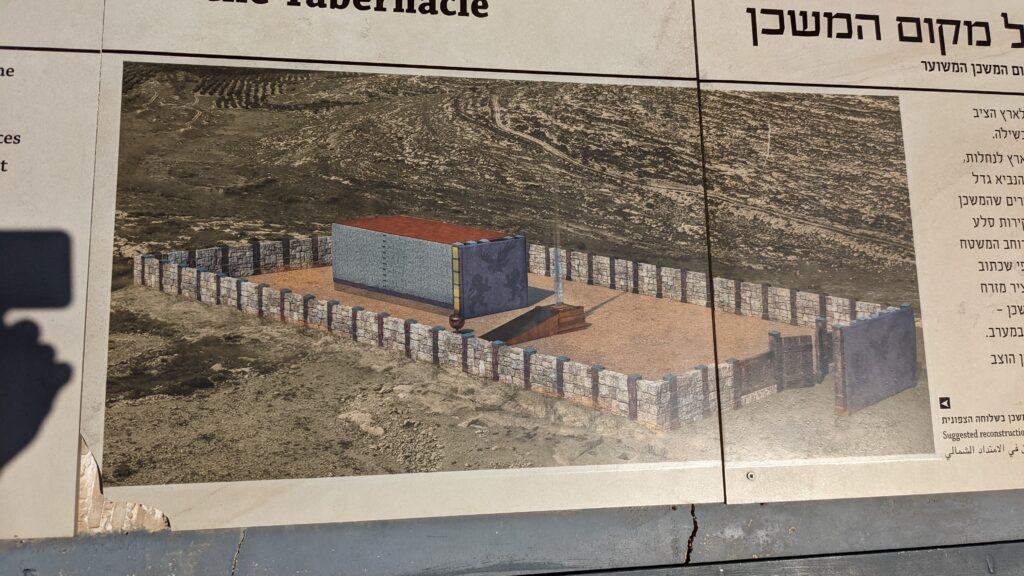
Art of the Tabernacle at Shiloh
Samuel would go on to become the last Judge of Israel, and one of the greatest prophets. Under his watch, Saul, and later David would become King. David, called a man after God’s own heart, would prepare to move the Spiritual center of Israel even further south, and his son Solomon would build the temple to the Lord in Jerusalem.
However after the kingdom split in two during the reign of Solomon’s son Rehoboam, the new king of the 10 tribes of Israel, would build his capital at Shechem, between the hills of blessing and cursing. Here God offers Jeroboam a choice, “If you will listen to all that I command you, and will walk in my ways, and do what is right in my eyes by keeping my statutes and my commandments, as David my servant did, I will be with you and will build you a sure house, as I built for David, and I will give Israel to you.” (1 Kings 11:38) However Jeroboam rejects this offer, and instead sets up two golden calves for the people to worship. It isn’t long before the kingdom is taken from his line and given to others.
Eventually the Kingdom of Israel ends up in the line of Omri, the father of Ahab. Omri moves his capital city to Samaria, north west of Mount Ebal from Shechem, literally on the other side of the mountain of curses. While Samaria meets all of the physical qualifications for a good capital city, defensible, close to trade routes, plentiful access to water, etc., Omri and his son Ahab turn it into a center of idolatry. It remained that way for a long time, even housing a temple to Caesar at one point.
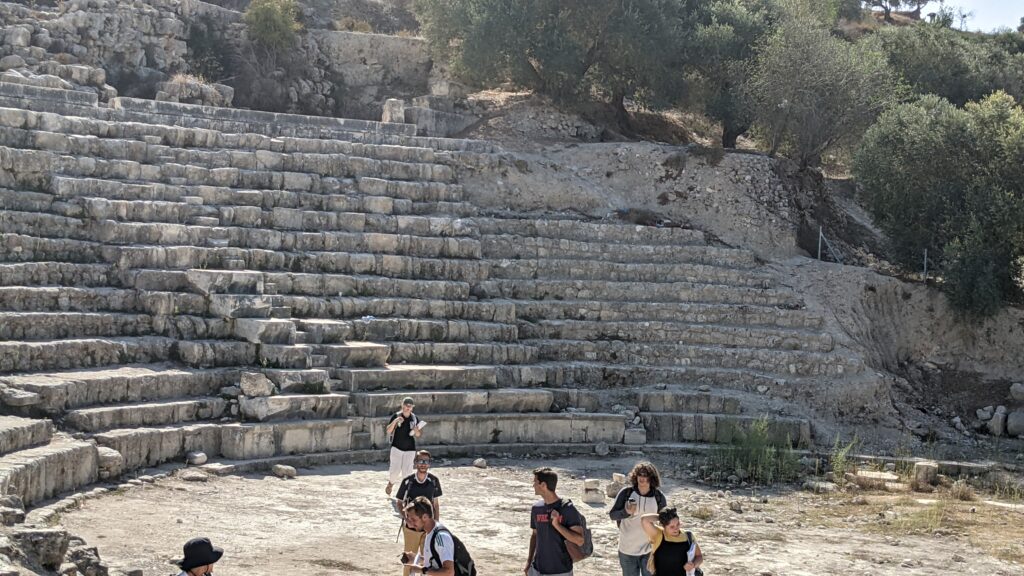
Herod’s Theater at Samaria 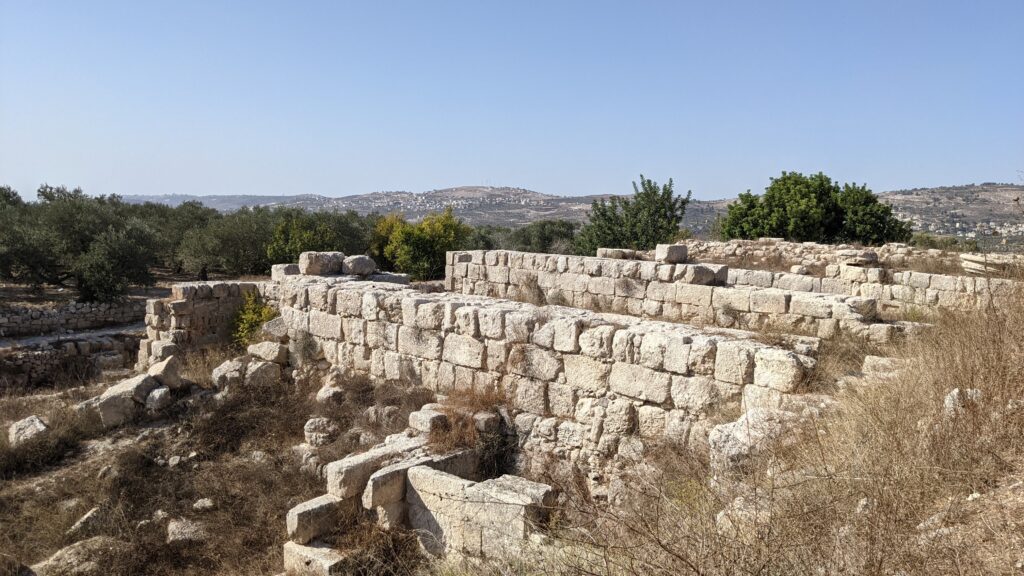
Ahab’s Palace at Samaria 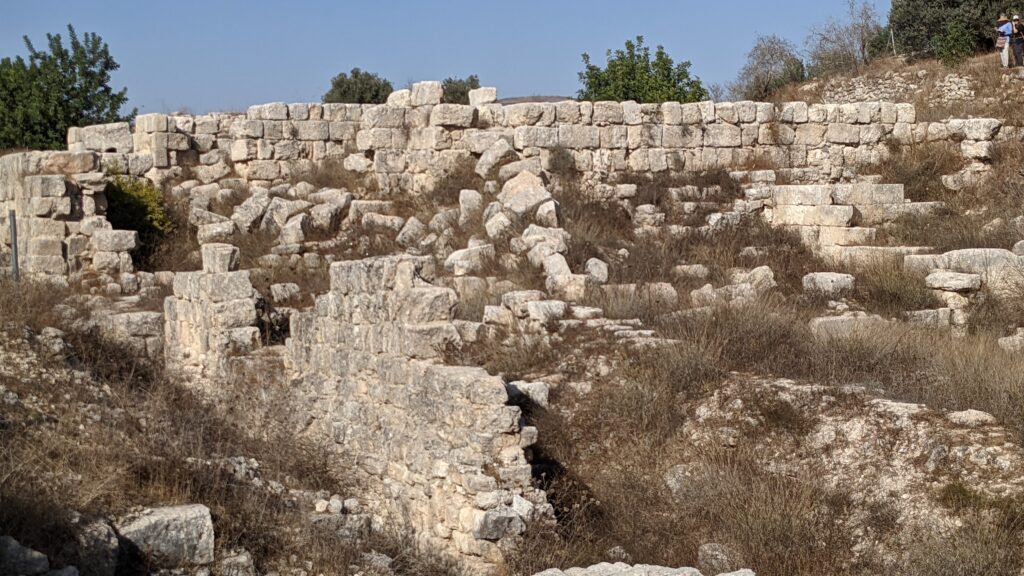
Ahab’s Palace at Samaria 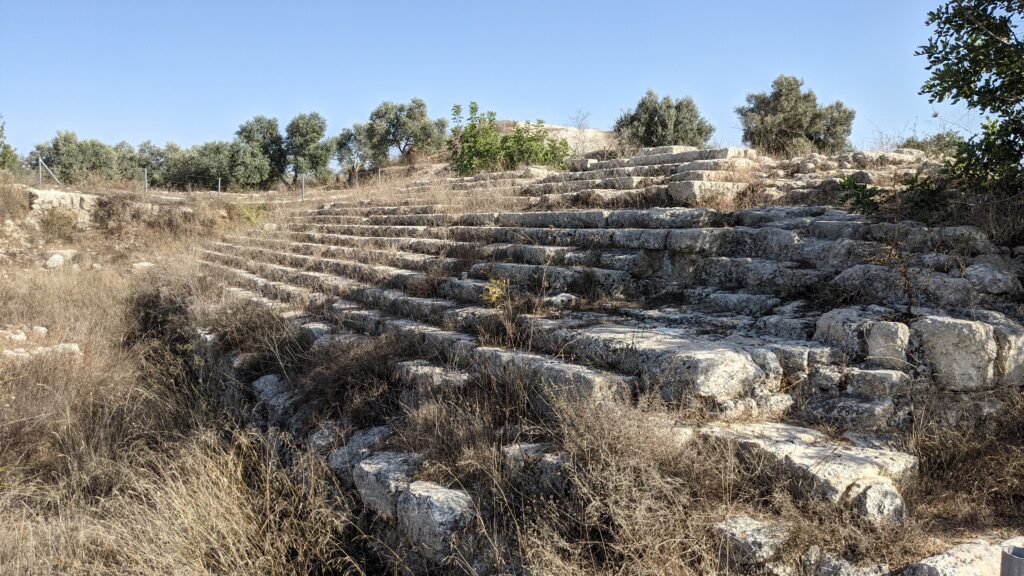
The Steps to the Temple of Caesar in Samaria
“Choose this day whom you will serve.” It is a choice we all must make, whether to follow God, and receive His blessings, or to turn and follow other things, and suffer the consequences that come with such a decision. I prefer to say, like Joshua “As for me and my house, we will serve the Lord.” I hope you will too.

David Williams
Nancy